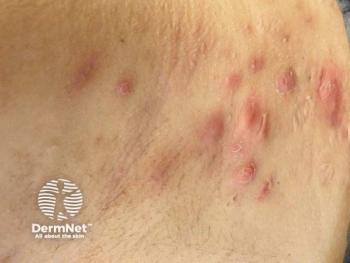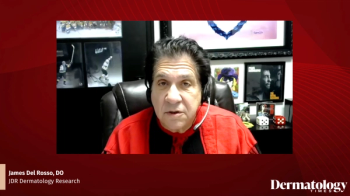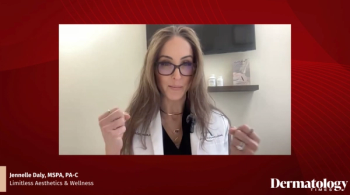
Line-Field Confocal Optical Coherence Tomography Exhibits Highest Sensitivity and Negative Predictive Value in Onychomycosis
LC-OCT demonstrated higher sensitivity and negative predictive value compared to other methods of diagnosis and detection.
Nail diseases, particularly onychomycosis, represent a significant burden for patients, posing diagnostic challenges due to the overlap with various nail disorders, according to authors behind a recent sutdy. Accurate and timely diagnosis is crucial for optimal treatment and enhanced patient quality of life.
In a recent study published in the Journal of the German Society of Dermatology,1 researchers sought to investigate the potential of line-field confocal optical coherence tomography (LC-OCT) as a non-invasive diagnostic tool for onychomycosis, comparing its performance with conventional and other non-invasive methods.
Researchers Eijkenboom et al noted that prior research of LC-OCT has substantiated its capabilities, which combine high cellular resolution combined, penetration depth, and the generation of 3D nail-plate images.2
Conducted at the Ludwig Maximilian University Hospital in Munich, Germany, the study included 100 patients with clinically or dermoscopically apparent nail conditions.
LC-OCT, alongside video dermatoscopy, confocal laser scanning microscopy (CLSM), and optical coherence tomography (OCT), was employed for diagnostic evaluation.
The study assessed the diagnostic accuracy of LC-OCT by comparing it with established methods, including potassium hydroxide (KOH) preparation, fungal culture, and polymerase chain reaction (PCR).
LC-OCT demonstrated a remarkable sensitivity of 92.2% and a specificity of 77.6%, outperforming CLSM and OCT. Sensitivity and negative predictive value for LC-OCT were notably higher than gold standard methods.
In fact, LC-OCT exhibited the highest positive correlation with OCT (79.5% of patients) and the lowest with culture (20.7%). Specificity (77.6%) and positive predictive value (81%) were comparable to CLSM but surpassed OCT.
In cases where species identification was possible (47 cases), LC-OCT successfully detected various fungal species, including Trichophyton rubrum, Trichophyton interdigitale, Candida parapsilosis, and Candida guilliermondii.
LC-OCT demonstrated rapid results, with an approximate duration of 5 minutes, making it more time-efficient compared to other methods, including PCR and culture. While LC-OCT incurs higher acquisition costs, its efficiency in terms of time and the elimination of invasive procedures suggests potential cost-effectiveness in the long run, according to researchers.
"LC-OCT allows quick and accurate detection of hyperreflective fungal hyphae in nails without the need for nail sampling and should be considered for standard clinical practice," wrote Eijkenboom et al. "Further studies should investigate how LC-OCT can be used for tracking clinical progress under therapy."
References
- Eijkenboom QL, Daxenberger F, Gust C, Hartmann D, Guertler A, Steckmeier S, et al. Line-field confocal optical coherence tomography, a novel non-invasive tool for the diagnosis of onychomycosis. J Dtsch Dermatol Ges. January 26, 2024. Accessed January 31, 2024.
https://onlinelibrary.wiley.com/doi/10.1111/ddg.15310 - Ruini C, Schuh S, Sattler E, Welzel J. Line-field confocal optical coherence tomography-Practical applications in dermatology and comparison with established imaging methods. Skin Res Technol. 2021; 27: 340-352.
Newsletter
Like what you’re reading? Subscribe to Dermatology Times for weekly updates on therapies, innovations, and real-world practice tips.










